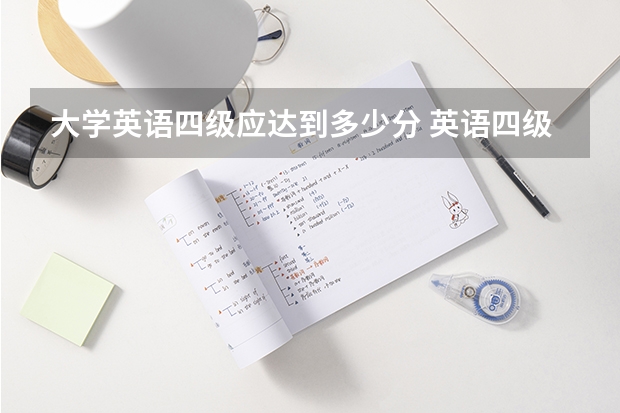武汉大学英语四级听力考试真题 求2022年大学英语四级真题下载?
2023-09-21 14:25:09 | 蜕变培训网

2014年6月大学英语四级听力真题及答案
再过半个月就要进行英语四级考试了,这时候同学们可以赶紧做做真题来找到考试的感觉,通过做真题你会发现一些规律,找到解题方法。为大家准备了2014年6月英语四级考试听力真题及答案,一起来看看吧!有需要的朋友可以收藏起来!
2014年6月大学英语四级听力真题及答案
Listening Comprehension (30 minutes) Section A
Directions: In this section, you will hear 8 short conversations and 2 long conversations. At the end of each conversation, one or more questions will be asked about what was said. Both the conversation and the questions will be spoken only once. After each question there will be a pause. During the pause, you must read the four choices marked A), B), C) and D), and decide which is the best answer. Then mark the corresponding letter on Answer Sheet 1 with a single line through the centre.
注意:此部分试题请在答题卡1上作答。
1. A. See a doctor about her strained shoulder B.Use a ladder to help her reach the tea. C.Replace the cupboard with a new one. D.Place the tea on a lower shelf next time.
1. W: I can’t seem to reach the tea at the back of the cupboard。 M: Oh„ Why don’t you use the ladder? You might strain your shoulder。 Q: What does the man suggest the woman do?
2. A. At Mary Johnson’s B. In an exhibition hall C. At a painter’s studio. D. Outside an art gallery.
2. W: Since it’s raining so hard, let’s go and see the new exhibits。 M: That’s a good idea. Mary Johnson is one of my favorite painters。 Q: Where does the conversation most probably take place?
3. A. The teacher evaluated lacks teaching experience.
B. She does not quite agree with what the man said. C. The man had better talk with the students himself. D. New students usually cannot offer a fair evaluation.
3. M: I hear the students gave the new teacher an unfair evaluation。 W: It depends on which student you are talking about。 Q: What does the woman imply?
4. A. He helped Doris build up the furniture. B. Doris helped him arrange the furniture. C. Doris fixed up some of the bookshelves. D. He was good at assembling bookshelves.
4. W: It must have taken you a long time to fix up all these book shelves。 M: It wasn’t too bad. I got Doris to do some of them。 Q: What does the man mean?
5. A. He doesn’t get on with the others. B. He doesn’t feel at ease in the firm. C. He has been taken for a fool. D. He has found a better position.
5. W: Rod, I hear you’ll be leaving at the end of this month. Is it true?
M: Yeah. I’ve been offered a much better position with another firm. I’d be a fool to turn it down。 Q: Why is the man quitting his job?
6. A. They should finish the work as soon as possible. B. He will continue to work in the garden himself. C. He is tired of doing gardening on weekends. D. They can hire a gardener to do the work.
6. W: I honestly don’t want to continue the gardening tomorrow, Tony? M: Neither do I. But I think we should get it over with this weekend。 Q: What does the man mean?
7. A. The man has to get rid of the used furniture. B. The man’s apartment is ready for rent. C. The furniture is covered with lots of dust. D. The furniture the man bought is inexpensive.
7. W: You’ve already furnished your apartment? M: I found some used furniture that was dirt cheap。 Q: What do we learn from the conversation?
8. A. The man will give the mechanic a call. B. The woman is waiting for a call. C. The woman is doing some repairs. D. The man knows the mechanic very well.
8. W: Has the mechanic called the bus repairers?
M: Not yet .I’ll let you know when he calls。 Q: What do we learn from the conversation?
9. A. She had a job interview to attend. B. She was busy finishing her project. C. She had to attend an important meeting. D. She was in the middle of writing an essay.
Question: 9. Why couldn’t the woman’s roommate attend the Shakespearean English class that afternoon? W: Nothing, it’s just that she submitted a job application yesterday and the company asked her in for an interview today. She’s afraid she won’t be able to attend your class this afternoon though. I’m calling to see whether it would be OK if I gave you her essay. Janet said it’s due today。
10. A. Accompany her roommate to the classroom. B. Hand in her roommate’s application form. C. Submit her roommate’s assignment. D. Help her roommate with her report.
Question: 10. What favor is the woman going to do for her roommate?
11. A. Where Dr. Ellis’s office is located. B. When Dr. Ellis leaves his office. C. Directions to the classroom building. D. Dr. Ellis’s schedule for the afternoon.
Question: 11. What does the woman want to know at the end of the conversation?
W: Fine, please tell her I’ll be there at 4:00. And Dr. Ellis, one more thing, could you tell me where your office is? Janet told me where your class is, but she didn’t give me directions to your office。
12. A. He find it rather stressful. B. He is thinking of quitting it. C. He can handle it quite well. D. He has to work extra hours.
Question: 12. What does the man say about his job?
M: Not bad, Jane. I’m involved in several projects and it’s a long working day. But I’m used to that so it doesn’t bother me too much。
13. A. The 6:00 one B. The 6:30 one. C. The 7:00 one D. The 7:30 one Question: 13. Which train does the man take to work every day?
M: It was terrible at first, especially getting up before dawn to catch that 6:30 train. But it’s bearable now that I’ m used to it。
14. A. It is an awful waste of time. B. He finds it rather unbearable. C. The time on the train is enjoyable. D. It is something difficult to get used to.
Question: 14. How does the man feel about commuting to work every day now?
W: Don’t you think it’s an awful waste of time? I couldn’t bear to spend three hours sitting in a train every day。 蜕变培训网
M: I used to feel the same as you. But now I quite enjoy it。
15. A. Reading newspaper. B. Chatting with friends. C. Listening to the daily news. D. Planning the day’s work.
Question: 15. How does the man spend his time on the morning train?
W: How do you pass the time? Do you bring some work with you to do on the train?
M: Ah, that’s a good question. In the morning, I just sit in comfort and read the papers to catch up with the news. On the way home at night, I relax with a good book or chat with friends or even have a game of bridge。
Section B
Directions: In this section, you will hear 3 short passages. At the end of each passage, you will hear some questions. Both the passage and the questions will be spoken only once. After you hear a question, you must choose the best answer from the four choices marked A), B), C) and D). Then mark the corresponding letter on Answer Sheet 1 with a single line through the centre.
注意:此部分试题请在答题卡1上作答。
Passage One
Questions 16 to 18 are based on the conversation you have just heard.
16. A) Ignore small details while reading. B) Read at least several chapters at one sitting. C) Develop a habit of reading critically.
D) Get key information by reading just once or twice.
Question: 16. What should American college students do to cope with their heavy reading assignments?
17. A) Choose one’s own system of marking. B) Underline the key words and phrases. C) Make as few marks as possible. D) Highlight details in a red color.
Question: 17. What suggestion does the speaker give about marking a textbook?
18. A) By reading the textbooks carefully again. B) By reviewing only the marked parts. C) By focusing on the notes in the margins. D) By comparing notes with their classmates.
Question: 18. How should students prepare for an exam according to the speaker?
Passage Two
Questions 19 to 21 are based on the conversation you have just heard
19. A) The sleep a person needs varies from day to day. B) The amount of sleep for each person is similar. C) One can get by with a couple of hours of sleep. D) Everybody needs some sleep for survival.
Question: 19. What is taken for granted by most people?
20. A) It is a made-up story. B) It is beyond cure. C) It is a rare exception. D) It is due to an accident.
Question: 20. What do doctors think of Al Herpin's case?
21. A) His extraordinary physical condition. B) His mother’s injury just before his birth. C) The unique surroundings of his living place. D) The rest he got from sitting in a rocking chair.
Question: 21. What could have accounted for Al Herpin's sleeplessness?
Passage Three
Questions 22 to 25 are based on the conversation you have just heard.
22. A) She invested in stocks and shares on Wall Street. B) She learned to write for financial newspapers. C) She developed a strong interest in finance. D) She tenderly looked after her sick mother.
Question: 22. What do we learn about Hetty Green as a child?
23. A) She made a wise investment in real estate. B) She sold the restaurant with a substantial profit. C) She got 1.5 million dollars from her ex-husband. D) She inherited a big fortune from her father.
Question: 23. How did Hetty Green become rich overnight
24. A) She was extremely mean with her money. B) She was dishonest in business dealings. C) She frequently ill-treated her employees. D) She abused animals including her pet dog. Question: 24. Why was Hetty Green much hated?
25. A) She made a big fortune from wise investment. B) She built a hospital with her mother’s money. C) She made huge donations to charities. D) She carried on her family’s tradition.
Question: 25. What do we learn about Hetty's daughter?
Section C
Direction: In the section, you will hear a passage three times. When the passage is read for the first time, you should listen carefully for its general idea. When the passage is read for the second time, you are required to fill in the blanks with the exact words you have just heard. Finally, when the passage is read for the third time, you should check what you have written.
注意:此部分试题请在答题卡1上作答。
Among the kinds of social gestures most significant for second-language teachers are those which are ___(26)___ in form but different in meaning in the two cultures. For example, a Colombian who wants someone to ___(27)___ him often signals with a hand movement in which all the fingers of one hand, cupped, point downward as they move rapidly ___(28)___ .Speakers or English have a similar gesture through the hand may not be cupped and the fingers may be held more loosely, but for them the gesture means goodbye or go away, quite the ___(29)___ of the Colombian gesture. Again, in Colombian, a speaker of English would have to know that when he ___(30)___height he most choose between different gestures depending on whether he is ___(31)___ a human being or an animal. If he keeps the palm of the hand ___(32)___the floor, as he would in his own culture when making known the height of a child, for example, he will very likely be greeted by laughter, in Colombia this gesture is___(33)___for the description of animals. In order to describe human beings he should keep the palm of his hand ___(34)___to the floor. Substitutions of one gesture for the other often create not only humorous but also___(35)___ moment. In both of the examples above, speakers from two different cultures have the same gesture, physically, but its meaning differs sharply.
1.答案:B Use a ladder to help her reach the tea.
2.答案:D Outside an gallery art.
3.答案:D. New students usually cannot offer a fair evaluation.
4.答案:C Doris fixed up some of the bookshelves.
5.答案:D He has found a better position.
6.答案:A They should finish the book as soon as possible.
7.答案:D The furniture the man bought is inexpensive.
8.答案:B The woman is waiting for the call.
9.答案:A She had a job interview to attend
10.答案:C Submit her roommate's assignment
11.答案:A Where Dr. Ellis’s office is located.
12.答案:C He can handle it quite well
13.答案:B The 6:30 one
14.答案:C The time on the train is enjoyable
15.答案:A Reading newspapers.
Section B
Passage One
16.答案:D Get key information by reading just once or twice
17.答案:A Choose one's own system of marking
18.答案:B By reviewing only the marked parts.
Passage Two
19.答案:D Everybody needs some sleep for survival.
20.答案:C It is a rare exception
21.答案:B His mother's injury just before his birth.
Passage Three
22.答案:C She developed a strong interest in finance
23.答案:D She inherited a big fortune from her father
24.答案:A She was extremely mean with her money
25.答案:B She built a hospital with her mother's money
Section C
答案: 26. identical 27. approach 28. back and forth 29. opposite 30. indicates 31. referring to 32. parallel to 33. reserved 34. at the right angle 35. embarrassing
以上就是为大家提供的2014年6月英语四级考试听力真题及答案,希望对您有帮助!想要成功拿下12月份的英语四级,您还需掌握更多考试技巧, CTRL+D 收藏并持续关注本站有惊喜,将竭诚助您考试一臂之力!
猜你喜欢 :

求2022年大学英语四级真题下载?
《历届四级真题》百度云网盘资源下载地址
链接:
?pwd=keki 提取码:keki英语四级一般指大学英语四级考试。 大学英语四级考试,即CET-4,College English Test Band 4的缩写,是由国家教育部高等教育司主持的全国性英语考试。内含:听力、真题、翻译、写作、答案解析等

英语听力,专家的进
我不是很清楚,不过帮你找了些资料:英语语音知识与学生听力能力的相关性研究及应对策略
[◎ 隋 敏]
摘 要:本文通过研究非英语专业学生的英语语音知识与听力理解之间的关系,探讨如何正确运用语音知识,加强听力训练,以提高学生的听力能力。课题组以黑龙江大学50名文理科不同专业的学生为研究对象,进行了为期五周二十学时的实验研究。
关键词: 语音 听力理解 相关性
1. 引言
听作为一种输入型技能,是衡量一个人英语水平的最基本条件之一,听力理解的能力是语言使用能力的重要组成部分。在人们从事交际活动中,9%的时间用于写,16%的时间用于阅读,30%的时间用于说,而45%的时间则是听。由此可见,听在日常交际中占着相当重要的地位。听力理解是对口头语言的解码过程,是创造性的思维过程,也是相当复杂的心理过程,是对声学信号进行分辨、筛选、组合、记忆、释义、储存、预测的过程。因此,影响听力理解的因素很多,如:词汇量, 英语国家的文化背景知识以及听者的心理因素, 判断推理能力等。语音知识的不足是学生理解有声材料的一大障碍。本文试图通过研究非英语专业学生的英语语音知识与听力理解之间的关系,探讨如何正确运用语音知识,加强听力训练,以提高学生的听力能力。
2.调查设计
2.1实验目的
通过短期语音训练,向学生传授一些基本的语音知识,纠正不准确发音,以提高学生的语音能力。探讨语音知识与听力理解的相关性。
2.2实验对象
受试者为黑龙江大学03级刚刚结束大学英语四级学习的50名文理科不同专业的学生。
2.3实验设计
课题组采用举办英语语音知识与听力教学实验班的方法展开研究,为期五周,共二十学时。在试验班授课第一次和最后一次分别进行了听力测试和语音问卷调查,为了保证听力测试的信度,我们选择了学生均未听过的1998年6月和1999年1月两年四级考试真题。在实验班授课期间,向学生讲解英语语音的基本知识及其在听力中的应用。最后对两次听力测试的成绩进行对比,力图证实听力理解与语音知识之间的相关性。
3.实验结果及分析
3.1 通过分析语音问卷调查,了解学生的语音状况。
为了了解学生的语音状况,课题组设计了如下问题:
题目一
1. 英语有多少个单元音?
A. 20 20%
B. 18 28%
C.12 52% (正确答案)
2. Many 一词中的a发什么音?
A. /æ/ 71%
B. /e/ 29% (正确答案)
C. /ai/ C. 0
3. increase做动词时重音在:
A.第一音节 24%
B.第二音节 76% (正确答案)
4. interest 的重音在
A.第一音节 39% (正确答案)
B.第二音节 58%C. 3%
C.第一音节和第二音节
5. I don’t think he can do it.这句话有几个句重音?
A. 2 个 45% (正确答案)
B. 3个 37%
C. 4 个 9%
D. 不清楚 9%
6.I shouldn’t have thought it possible
for him to do it.这句话有几个句重音?
A. 2 个 0% (正确答案)
B. 3个 48%
C. 4 个 22%
D. 不清楚 30%
7.I don’t think he can do it.
I shouldn’t have thought it possible
for him to do it.
以上两句读起来占时______。
A.一样长 3% (正确答案)
B.不一样长 52%
C.有时一样长,有时不一样长 39%
D.不清楚 6%
8.lamp-post一词中哪个音可以失去爆破?
A. 第一个/p/66% (正确答案)
B. 第二个/p/ 26%
C. 不清楚 8%
9. I can not make it in the room.
A有一处连读 20% (正确答案)
B有两处连读 58%
C有三处连读 22%
10. ---Could you help me with the work?
---Sorry.如果想表达拒绝应用
A. 升调 6%
B. 降调 94% (正确答案)
如果想表达没听清楚应用
A. 升调 94 %(正确答案)
B. 降调 6%
11. ---Did you have a good weekend?
---No, it was awful. I played football
on Saturday, and it poured with rain.
Saturday 应用
A.升调 12% (正确答案)
B.降调59%
C.升降调26%D.
D.不清楚3%.
12. ----Mary has finished her work.
---- Has she?
A.如果你要作出礼貌的回答, 应用降声调; 如果你要作出惊奇的反应, 应用升降调。
B.如果你要作出礼貌的回答, 应用升降调; 如果你要作出惊奇的反应, 应用降声调。
C.如果你要作出礼貌的回答, 应用降声调; 如果你要作出惊奇的反应, 应用降声调 。
D.不清楚
A.19% (正确答案) B. 72% C.3% D.6%
通过表一中的1,2 题, 我们可以了解受试者的语音音位知识情况, 音位在音系学中被定义为 “能够区别意义的最小单位”, 语言里小得不能再分的语义单位是由音位构成的, 熟悉一种语言的音位知识, 对于掌握该语言的正确发音有极大帮助, 进而可以帮助学习者进行听力中的辨音。1,2 题的数据显示,只有半数多一点的受试者了解英语单元音的数目,71% 的受试者不能正确读出many 一词。
通过表一中的3,4 题, 我们可以看出受试者对英语的词重音掌握的不是很准确,只有39%的受试者能够正确读出interest 一词。我们知道,重音在英语语音学里占着重要的地位,它是节奏和语调的基础,是语言表达的主要手段之一,正因为如此,英语属于重音语言之列。英语又是一种韵律性极强的语言, 英语语句的韵律主要是通过音节的交替出现来表示的, 为了满足韵律的要求, 英语句中自然应该有一些比较次要的词失去本身的重音,在这样的情况下, 某些词所保留的词重音就成了句子的重音——句重音。表一5,6,7题显示,受母语重音模式影响,大多数受试者不能很好地掌握句重音。在第5题中,只有不到一半的受试者正确回答出I don’t think he can do it. 这句句重音的数目。而第6题 I shouldn’t have thought it possible for him to do it. 这一相对较长的句子,决大多数受试者选择了3 个或4个句重音,没有一位受试者选择了正确答案A。从第7题数据可以看出, 97% 的受试者不了解句子的占时与句重音之间相关,而与句子本身的音节、长短无关。我们知道英语是一种以重音计时的语言,它的节奏的基本倾向表现为各个重读音节的时距大体相等。一个句子里的重读音节越多, 发音的速度就越慢;与此相反,重读音节少而非重读音节多的句子在音速上则要快得多。只有这样才能保持话语的正确节奏。因此,要培养良好的发音和辨音能力,词重音、句重音及节奏是一个重要环节。
表一第8题显示,34%的受试者不了解lamp-post一词中,第一个/p/失去爆破。由此可见,受试者对于不完全爆破的知识掌握得不是很好。从表一第9题我们了解到,只有20%的受试者能正确连读 I can not make it in the room. 58% 的受试者认为can 与not 可以连读。 选择有三处连读的受试者不了解连读只能发生在同一个意群内,因此it 与in 之间不能连读。语音作为语言的物质材料,在话语里从来不是孤立地出现的,而总是以一定的结构方式组合成音节、词和词的序列。在各种语音组合里,邻近的语音往往互相影响,结果引起发音上的变化。学习者在学习的过程中,往往发现听到的单词、短语或句子与书本或词典上所标注的音素音标并不尽相同,这就是英语语音中的音变。如果不能给予足够的重视,这些语音音变现象就会形成言语障碍,造成对听力材料的理解偏差、误解,进而也影响到口语发音不地道。
从表一第10题我们了解到,94%的受试者会使用升、降调表达sorry 一词表达的完全不同的语义,这是因为sorry一词两个不同语调所表达的不同语义是学生在日常生活中经常能够接触到的,因此,掌握起来很容易。而对于比较复杂的语调表义功能,学生掌握的不是很好。如表一第11题显示,只有12%的受试者掌握了升调表达“未完成”这一概念,选择了正确的答案A。在第12题表达的语境中,使用降升调表示礼貌的回应,而使用升降调则表示惊奇或感叹的情感,然而只有19%的受试者做出了正确的选择。语调是连贯言语里声音音调变化所造成的旋律模式。在英语及其他语调语言里,人们使用各种旋律模式来表达话语的意思,表达说话人的态度、感情和情绪,或表达某种“言外之意”。人们所说的每一句话,都可以根据所要表达的意思和感情色彩形成特定的语调类型,每一种语调类型都有各自的意义和用法,他们在口语中起着重要作用。学习一门语言时,学习语言的发音固然重要——发音准确是说话的最基本要求;但是,在言语交际中,准确的语调却更为重要。说话时,以语音构成的词是按语法规则通过各种各样的语调模式串连成一个个句子的,用于表达说话人的思想感情。因此可以说,没有语调也就没有话语的意义。从表一第 11,12 题的答题情况看,对于语调知识的掌握是中国学生的一大薄弱环节,而正确的语调却是人们表达语义、理解语义的关键。
3.2 透视四级真题,分析语音知识对听力理解的影响
从心理学的角度看,听力理解是一个包括声音的刺激、信息的输入、编码的储存、信息的处理和信息的输出的一种极为复杂的高级神经系统的心理活动过程。听的过程是音义结合、重组构建及口头反馈的过程。在此过程中,第一步也是至关重要的一步就是辨音。音素的破译是理解词和句子的基础。听音者首先必须熟知和掌握英语的语音、音调,包括语流中的音素、连读、重音、略读的知识,因为许多英语单词单独发音与在语流中的发音是不同的。《大学英语教学大纲》也对听的技能做出了如下详细的阐述:
L1 Discriminating Sounds in Isolated Word Forms 辨别单词中的音素
1.1 Phonemes
1.2 Phonemic contrasts
L2 Discriminating Sounds in Connected Speech辨别语流中的音素
2.1 Strong and weak forms
2.2 Modification of sounds
a.Assimilation
b.Elision
c.Liaison
L3 Recognizing Stress Patterns辨别重音类型
3.1 Stress patterns within words
3.2 Stress in connected speech
3.3 Variation in stress
L4 Understanding Intonation Patterns理解语调类型
L5 Understanding the Communicative Function of Utterances理解话语的交际价值
5.1 With explicit indicators
5.2 Without explicit indicators
5.3 Implied meaning
L6 Understanding the Main Idea(s) or Important Information in a Piece of Discourse 理解语篇的大意和重要信息
L7Identifying the Speaker’s Point of View, Attitude, or Purpose 领会说话人的观点,态度或目的
通过分析学生对1998年6月及1999年1月四级真题听力的答题情况, 并结合对四级历年听力真题的考点分析,笔者认为语音知识对听力理解的影响主要体现在以下方面:
3.2.1 语音相似
语言里小得不能再分的语义单位是由音位构成的。当音位按一定的语音规律排成序列时就产生更大的语义实体:词素、词和句子。因此对语言音位系统的研究是至关重要的。熟悉一种语言的音位结构,对于掌握该语言的正确发音是一个极大的帮助。在英语中有许多相似性音位,如/ i:/,/i/;/e/ ,/ai/;/a:/ , / u:/,/u/, 在快速语流中,如果含有相似音,就会对听音者造成理解上的偏差。另外受母语的影响,中国学生对于/θ/ 和/ th; /的发音及听音都表现出了一定的问题,因此对于诸如:“thought”, “sought”;“think”, “sink” 等理解出现错误。在听音过程中各个人对声音信号的反映接受能力不一样,必然会产生不同的结果,受地方口音的影响,鼻音/n/ 与舌边音/l/不分,/l/与 /r/不分,也会造成单词理解的混淆。而辨别单词中的音素正是四级测试中的语音考点之一。
题目二(注:1999年1月英语四级听力考试第10题。)
M:Is that nice-looking straw hat light and strong?
W:Yes, you can wear it rain or shine.
Q:What are they talking about?
A)A sunny day. B) A raincoat.
C) An attractive hut. D) A lovely hat.
选项 A B C D(正确)
百分比 28% 12% 24% 36%
只有36% 的学生选出了正确答案D), 而24% 的学生由于没能够分辨/ʌ/ 和/ æ /的音选择了B), 即把hat 和hut 混淆。
再如1997年6月四级听力考试第8题:
M: Are you sure you have corrected all the typing errors in the paper?
W: Perhaps, I’d better read it through.
Q: What’s the woman going to?
A)Collect papers for the man.
B)Do the typing once again.
C)Check the paper for typing errors.
D)Read the whole newspaper.
此题A) 选项中的collect 与对话中的correct 的发音相似,为语音干扰项。出题人恰恰利用了快速语流中/l/与 /r/的相似性出了此选项。
3.2.2 音变
语音作为语言的物质材料,在话语里从来就不是孤立存在的,而总是以一定的结构方式组合成音节、词和词的序列。在各种语音组合里,邻近的语音往往相互影响,结果引起发音上的变化。快速语流中的音变给听力理解带来了很大的障碍,出题者恰恰以此设立干扰项。
题目三(注:1998年6月英语四级听力考试第9题。)
M: Did Henry paint the whole house himself?
W: He had it painted, because he doesn’t like climbing ladders.
Q: What do we learn from the conversation?
A) Henry doesn’t like the color.
B) Someone else painted the house.
C) There was no ladder in the house.
D) Henry painted the house himself.
选项 A B (正确) C D
百分比 6% 44% 6% 44%
44%的受试者由于had it painted 中的it 弱读,而理解为he had painted, 因此选择了D) 选项。在快速语流中,由于弱读及一些音位失落,给理解造成了偏差,学生必须根据上下文的语句进行理解辨音。
再如2000年1月四级考试第2题:
W: What do you think of the apple pie? I make it myself.
M: Very delicious indeed. Even my mother can’t match this.
Q: What does the man mean?
A) This apple pie tastes very good.
B) This apple pie can’t match his mother’s.
C) His mother likes the apple pie very much.
D) His mother can’t make apple pie.
在此题中,can’t 一词中/t/ 失去爆破后易被误解成can, 因此很多听者误选了B)选项。
3.2.3 重音、语调
听力理解不仅要听懂说话人表达的某种表面上的意思,同时还包括听懂由连读、句子重音、语调变化等朗读技巧所引起的隐含意思,这种由读音、语气、语调等内容构成的语言习惯也是四级考试中经常涉及的范围。
重音是决定词的语音外形的重要因素, 单词的重音不同,词性与词义也就有所改变,如:ˋdigest(名词),diˋgest (动词),而在一句话中,当说话人赋予某个词以对比意义时,这个词就变得格外突出,它在句子里的地位比起其他任何一个词来都重要,成为全句的核心。例如:
`I have 、read that 、book. (突出 “I”, 与 “someone else”形成对比 )
I`have 、read that 、book. (突出 “have”, 与 “haven’t”形成对比 )
I have 、read that 、book. (突出 “read”, 与 “just glanced through”形成对比 )
I have read `that 、book. (突出 “that”, 与 “any other”形成对比 )
I have read that `book. (突出 “book”, 与 “magazine”或其他读物形成对比 )
重读的目的往往是为了表现说话者的某种情感或观点, 其中包括赞成、反对、感叹、不同意、讽刺、惊讶等。例如2001年1月四级试题听力第4题:
M: I ’d better read one of the articles for our Political Science class.
W: You can’t read just one. They say each presents a different theory.
Q: What does the woman tell the man he must do?
A) Read more than one article.
B) Choose a better article to read.
C) Present a different theory to the class.
D) Read an article on Political Science.
答案为A)。对话中女士重读了 “You can’t read just one.”, 所以隐含的是男士不应只读一篇文章。
句子的语调对于听者的正确理解也至关重要。汉语的每一个字(音节)除了由元音辅音组成外,还有一个附在上面的声调,而这个声调起着区别或改变字义的重要作用。因而现代的语音学家就把汉语(或其他有类似语音结构的语言)称为声调语言(tone language)。但在这一方面,英语却大不相同,英语的单词,声调不能改变它的词义。在英语中,单词无固调。但把英语的词用在语句中时,就要按照说话者的态度或口气给它加上一定类型的语调。因为英语没有词的声调,而必须有句的语调,语调对于表达思想感情起着非常重要的作用,所以语言学家就把英语(或其他有类似语音结构的语言)叫做语调语言(intonation language)。一个是声调语言,一个是语调语言,这是汉、英两个语音系统主要的区别之一。我们中国人学英语,就要注意这个区别,努力去解决由于这一区别所引起的矛盾。
题目四(注:1998年6月英语四级听力考试第12题。)
Sam had worked 30 years for the same company and now he had to retire. As a sign of gratitude, the company held a dinner in his honor. "Sam," announced his boss, "It is my great honour to present this gift to you on behalf of the company." Sam walked down to the front of the table and accepted the gift with pride. It was a gold watch and on it was written "To faithful Sam for 30 years of service." Sam wept, "I am at a loss for words."(平调) At home, Sam's wife looked at the gold watch critically, "For this you worked 30 years? (高升调)A cheap gold-plated watch? "(高升调) "It's the thought dear," answered Sam," The important thing is that I am not working any more." His wife held the gold watch to her ear and said, "Neither is your watch."(高降调)
Question: How did Sam feel when he saw what was written on the watch?
A) He was embarrassed. B) He felt greatly encouraged.
C)He felt sad. D) He was deeply touched.
选项 A B C D(正确)
百分比 18% 32% 12% 38%
题目五(注:1998年6月英语四级听力考试第13题。)
Question: What can we infer from the story?
A) Sam's wife did not think that the company was fair to Sam.
B) Sam's wife was satisfied with the gold watch.
C) Sam did not like the gold watch.
D) The company had some financial problems.
选项 A(正确) B C D
百分比 62% 32% 6% 0%
题目四显示,只有38%的受试者理解了Sam 使用平调表达了一种感动的感情色彩。而表5显示,32%的受试者没能理解Sam 的妻子使用了两个高声调 “For this you worked 30 years? A cheap gold-plated watch?” 及一个高降调"Neither is your watch." 表达了不满的情绪, 而错误地选择了B) 项。由此可见,正确的语义理解并不只基于对词、短语及句子的理解,正确理解说话人的语气有助于对句义的正确理解。
再如2000年1月四级听力第8题:
M: I bought a few books at the new bookstore. Would you like to have a look at them?
W: A few! It looks like you bought out the whole bookstore.
Q: What does the woman mean?
A)She didn’t like the books the man bought.
B)There wasn’t a large selection at the bookstore.
C)The man bought a lot of books.
D)She wanted to see what the man bought.
答案是C)。对话中女士将 “a few”这一陈述句结构读成上升调,表示她对男士讲话表示怀疑, 继而提出 “bought out the whole bookstore”, 便可判断出正确答案。在听力理解过程中,经常用非常规语调来朗读常规句子,如用声调朗读陈述句来表示是怀疑,用降调朗读问句表示肯定。由此可见,掌握一定的语调知识是十分必要的。
4.语音能力与听力理解相关性结论
经过对比语音训练前后两次听力测试的成绩(第一次平均正确率为45.8%, 第二次平均正确率为59.4%), 研究组认为短期的语音训练对大部分学生来说是有一定效果的, 语音能力与听力理解具有一定相关性。克服语音障碍对提高学生听力理解有着极大的帮助。当然,还有很多因素影响学生的听力理解,如文化因素、心理因素、对习语的掌握情况、预测能力等。
5.应对策略
听的能力是一种吸收和理解言语信息的译码能力,在听力教学
中,一要培养学习者熟悉目的语的发音规则,二要培养学习者在语音层次上快速解码的能力。因此,想要提高英语听力水平,首先必须过好语音关。研究组对大学英语听力教学提出以下建议:
(1)学生入学时,对学生进行短期语音培训。很多学生,虽然经过中学六年的语言学习, 但并没有系统地学习过音标,而其他语音知识更是知之甚少,语音知识的匮乏是学生语言学习的一大障碍,导致学生不能正确发音,无法与别人交流,同时也很难理解对方的话语,久而久之,失去了英语学习的兴趣,或最终学成了哑巴英语。因此笔者认为通过短期的语音培训,使学生掌握一些基本的语音知识是十分必要的。从音标入手,使学生掌握连读、省音、同化、弱读、爆破等语音知识,在语流中把握词、句重音、节奏及语调。另外对学生进行正音,一定的语音知识及正确的发音是提高听力理解的必备前提。
(2)学生掌握了一定的语音知识的基础上,要进一步培养学生的语音和词义的“反射能力”(the reflexing capability)。听力训练是一个言语感知的过程,学习者不仅要掌握语音学知识,而且要就听力技巧进行反复训练。按照听说法代表人物E.F. Skinner 的教学程序“刺激----反应----强化” 原则,一旦学生在听力训练中接受刺激,形成迅速反映的习惯,当听到一定语音时, 就自然、流畅地“意会”到所听单词、句子的含义。也就是说通过语音对大脑皮层的刺激,直接反应成“语言的自然组合”,进而养成英语思维的习惯。因此,在听力教学中应采取精听与泛听相结合,通过反复精听,分析学生理解偏差、错误的原因,帮助学生辨清关键词及相关的音和义,在教师的指导下,识别快速语流中的连读、重音、语调,以便进一步提高学生的辨音能力和语篇理解能力。大量的泛听可以帮助学生辨别听音材料的语篇大意, 使学生大量接触接近真实场景的语言信息,达到建立娴熟的语言反射和意识反射的能力。
(3)在听力教学中应做到听说的有机结合,以听带说,以说促听,最终达到培养学生的交际能力的目的。交际中听说是不可分的,相辅相成,互相促进的。在听力课中,听说结合,可以一改学生被动听音的局面,使学生积极参加到听力课的教学中,激发学生的兴趣。在教学中,教师可以让学生模仿对话,通过模仿掌握正确的发音,语调。还可以让学生回答相关的问题,教师可以在学生第一遍听音时提出一些相对简单的问题, 然后随着反复播放,提出更深层的问题,这样,学生在每一遍听音过程中都有所收获,最终掌握了文章或对话的整体大意,这时,教师可以让学生进行复述练习。通过听力教学中听说的有机结合, 可以发挥学习者的语言潜能,培养学生良好的语感。
(4)教师应该培养学生大声朗读的习惯。读作为另一种输入型方式,可以帮助学生摄取大量的知识。而朗读是通过发音器官的活动储存到人脑中的信息,比通过视觉储存到人脑中的信息要牢固。学生如果不大声朗读,就无法体会到不同音素之间的不同,体会不出快速语流中的音变及不同语调的含义。因此,通过大声朗读,使正确的语音储存到大脑中,使头脑中储存的信息“声” 、“形” 、“意”俱全,以便听音时能够准确地反映出所听材料的“形” 和“意”,以达到良好的理解效果。
参考文献:
1.许天福,1998, 现代英语语音学,陕西:陕西人民出版社。
2.林焘,1992 ,语音学教程, 北京:北京大学出版社。
3.李瑞华,2000,英汉语言文化对比研究,上海:上海外语教育出版社。
4. 翁雪芳, 2005, 大学英语四六级应试听力突破, 上海:上海科学技术文献出版社。
5. Penny Ur , 2000,Teaching Listening Comprehension ,Cambridge: Cambridge University Press.
6. Peter Roach, 2000, English Phonetics and Phonology: A Practical Course, Cambridge: Cambridge University Press.
7. 大学英语教学大纲, 1999, 北京:高等教育出版社。 以上就是蜕变培训网小编整理的内容,想要了解更多相关资讯内容敬请关注蜕变培训网。

雅思考试报名时间?2023雅思报考时间如下:一月:1月7日、1月14日、1月28日。二月:2月4日、2月11日、2月18日、2月25日。三月:3月11日、3月18日、3月25日。四月:4月1日、4月8日、4月15日、4月22日、4月29日。五月:5月6日、5月20日、5月27日。六月:6月3日、6明月10日、6月24日。七月:7月8日、7月1
- 什么是大学英语四六级 是有年龄学历限制的吗
- 2023年6级考试时间下半年(四级报名截止时间2023下半年)
- 求大学英语四级历年真题下载地址,有没有好的推荐(我需要 四六级历年真题,百度网盘的链接有没有呀~求哥哥姐姐们分享)
- 大学几年级可以考英语四级(我是英语专业的,大学几年级考四六级,专四专八?最好具体点,是上半学期还是下半学期?谢谢!)
- 四六级几号考(四六级考试时间 英语听力耳机 济大学一)
- 六级报名和考试时间 英语四级考试 关于英语四六级考试的~~
- 4级和6级满分多少分?
- 大学英语四六级考试写作题型分析及范文(3)(英语六级的书信作文)
- 广东英语四级考试时间(广东省英语四六级考试报名时间)
- 四六级成绩报告单编号是什么意思
- 江苏省2023年四六级考试时间(江苏省四级考试时间2022年下半年)
- 湖北英语四六级考试时间2023 湖北四六级考试时间2023下半年 下半年湖北英语四六级考试安排
-
 大学英语四级应达到多少分 英语四级需要多少分
大学英语四级应达到多少分 英语四级需要多少分2023-09-30 18:46:49
-
 大学英语四级考试口试题型 大学英语四级考试有哪些题型?
大学英语四级考试口试题型 大学英语四级考试有哪些题型?2023-09-16 02:17:59
-
 大学英语四级考试赋分标准 英语四级分数赋分标准
大学英语四级考试赋分标准 英语四级分数赋分标准2023-09-09 04:27:27
-
 大学英语四级证多少钱 考英语四六级需要多少钱
大学英语四级证多少钱 考英语四六级需要多少钱2023-09-28 20:21:35
-
 南京农业大学英语四级考试 05年12月四级考试是否发放证书?急盼回信!!!!
南京农业大学英语四级考试 05年12月四级考试是否发放证书?急盼回信!!!!2023-09-25 11:01:08
-
 大学英语四级考试的分类号 大学英语四级成绩如何划分等级?
大学英语四级考试的分类号 大学英语四级成绩如何划分等级?2023-09-22 03:09:21